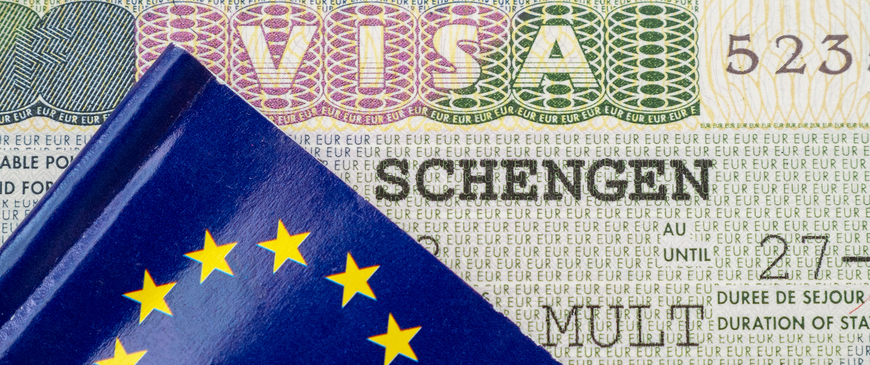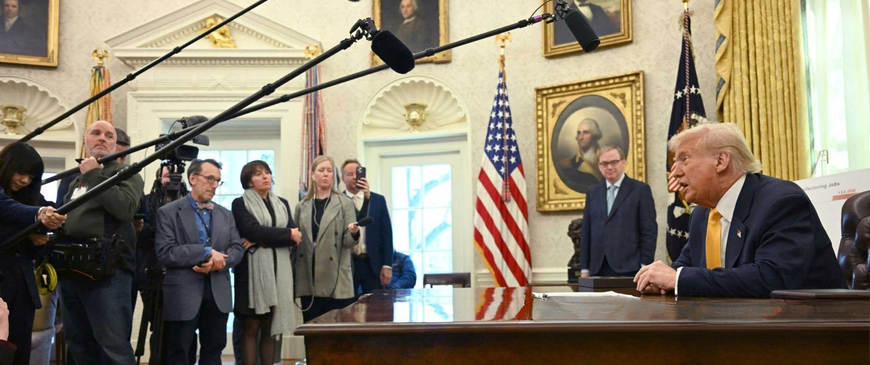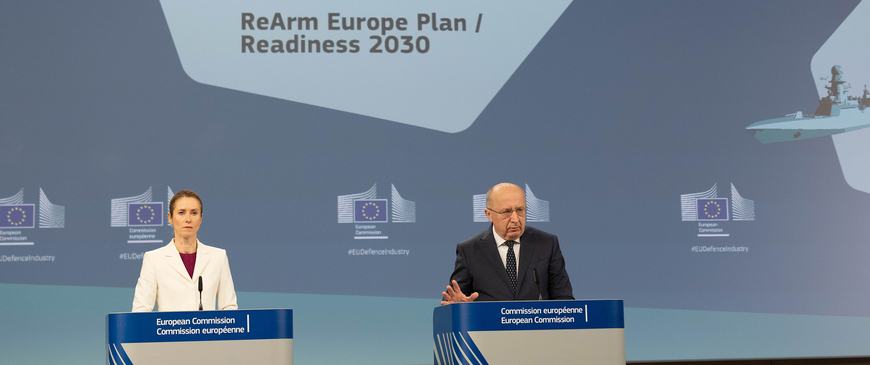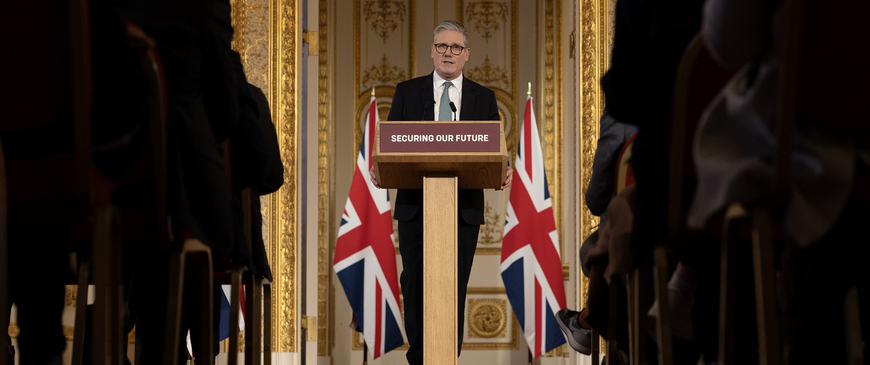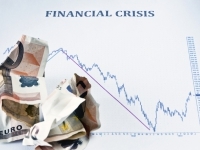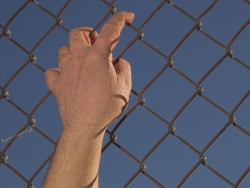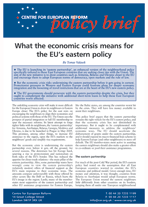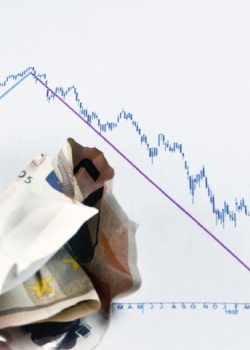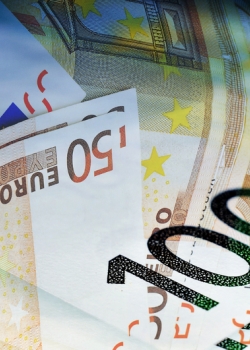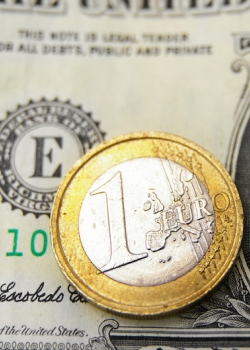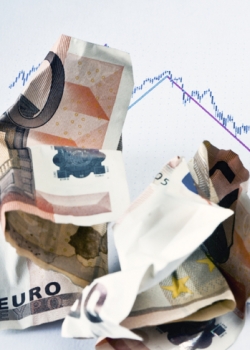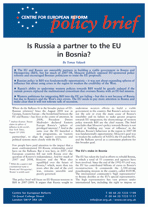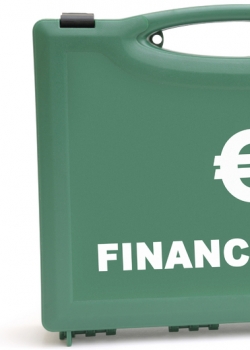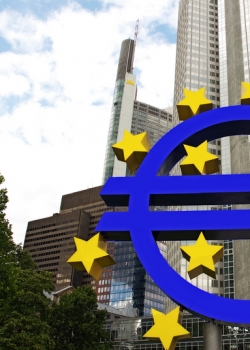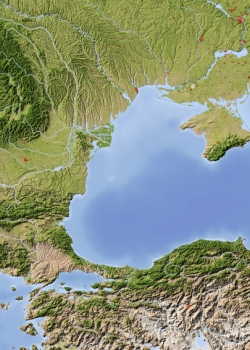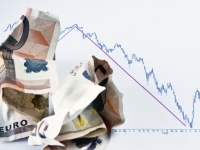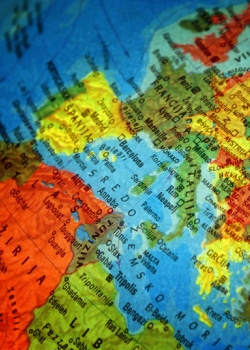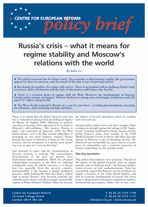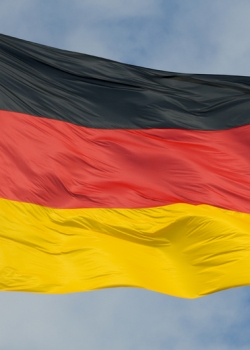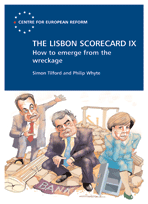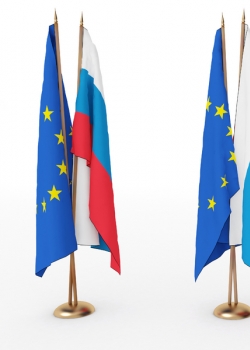Research
Towards a new system of financial regulation
23 April 2009
The financial crisis is often portrayed as the product of weak regulation in the Anglosphere. But it is more accurate to think of it as the result of flawed thinking (and policy) across the global financial system as a whole. One reason is that countries outside the Anglosphere have also experienced unsustainable credit and housing market booms.
Towards a better EU migration policy
08 April 2009
Over the last decade, EU countries have experienced a rapid rise in both legal and illegal migration, mostly from Turkey, Morocco, Albania, Algeria and Serbia. Each spring and summer, Mediterranean member-states struggle to cope as migrants perish attempting to reach Europe from North Africa in unseaworthy and over-crowded boats.
The G20 summit – a distraction?
03 April 2009
The good news first. The summit delivered more than expected. The trebling of the funds available to the IMF goes well beyond anything expected and is very welcome.
What the economic crisis means for the EU's eastern policy
01 April 2009
The EU's new 'eastern partnership' risks being undermined by the economic crisis. The initiative offers countries like Armenia and Ukraine fresh incentives, such as free-trade agreements and easier visa regimes, to adopt European norms of democracy and open markets.
Europe's flagging response to the financial crisis
01 April 2009
Since the 1980s, many of the largest economies in the EU have developed unenviable reputations for protracted economic downturns followed by sluggish recoveries.
Carbon price collapse threatens the EU's climate agenda
01 April 2009
The EU’s emissions trading scheme (ETS) works by capping the output of carbon dioxide and then distributing allowances to emit the gas to large energy users.
In the name of EU solidarity
01 April 2009
Is a new iron curtain threatening to divide the European Union? Hungary’s prime minister, Ferenc Gyurcsany, raised the spectre last month, when he warned that the eastern members were descending into economic mayhem while the richer EU countries were looking on unsympathetically.
The Europeans at the London summit
01 April 2009
Christine Lagarde, the French finance minister, threatens to walk out of the London G20 summit unless France gets its way on tougher financial regulation. The toppled Czech Prime Minister, Mirek Topolanek, who happens to hold the EU presidency, describes the US fiscal stimulus as “the road to hell”. Not one EU leader deems it necessary to support Gordon Brown publicly when he tries to drum up support for a more concerted international effort to revive the global economy.
Issue 65 - 2009
27 March 2009
- Europe's flagging response to the financial crisis , Philip Whyte
- Carbon price collapse threatens the EU's climate agenda, Simon Tilford
- In the name of EU solidarity, Katinka Barysch
What if the eurozone broke up?
23 March 2009
The future of the euro may not be secure, warned the CER’s Simon Tilford in a January 2009 essay. The current economic crisis threatens to exacerbate the tensions within the eurozone, and an insolvent member-state... could default and leave the eurozone. Since January, the economic crisis has deepened further, and the eurozone’s weakest economies have come under even greater strain.
Is Russia a partner to the EU in Bosnia?
19 March 2009
Where does Bosnia fit in the broader picture of EU – Russian relations? The EU and Russia are ostensibly partners in building a viable government in this Balkan country, but for much of 2007-08 Russia encouraged Bosnian politicians to resist EU-sponsored police reforms. This policy brief argues that Russian policy...
How serious is the threat to the single market?
19 March 2009
There has been a lot of anguished talk about how the EU’s single market is under threat. Much of this alarm has focused on government support for struggling car firms and public bail-outs of crisis-ridden banks.
The real G20 agenda
13 March 2009
Finance ministers from the G20 countries are meeting in London this weekend to prepare for the global economic summit at the start of April. Expectations are high. But what will the summit be about?
Economic crisis and the 'eastern partnership'
10 March 2009
In two months, at a summit in Prague on May 7th 2009, the European Union will launch a new policy for Eastern Europe – an 'eastern partnership'.
Financial regulation: Is the Channel narrowing?
27 February 2009
On February 25th 2009, a Commission-appointed taskforce headed by Jacques de Larosière published its much-awaited report on financial supervision in the EU.
Why enlargement is in trouble
24 February 2009
It is five years since the EU admitted eight Central and East European countries, followed by another two in 2007. To celebrate this anniversary, Commissioner Olli Rehn has just released a report that explains how these countries have benefited from integrating into the EU. But any jubilant mood was dimmed by the current economic crisis in Central and Eastern Europe; and by the bleak outlook for further accessions.
Russia's crisis - what it means for regime stability and Moscow's relations with the world
19 February 2009
The global financial crisis has had a tremendous impact on Russia. Its much-vaunted resurgence has hit the buffers, and the mood in Moscow is one of mounting anxiety.
Germany: Between a rock and a hard place
19 February 2009
Twelve months ago it seemed inconceivable that any member of the EU could face a sovereign debt crisis. It would have been the stuff of fantasy to argue that Ireland or Austria could be among those at risk.
The Lisbon scorecard IX: How to emerge from the wreckage
13 February 2009
EU governments are taking increasingly unorthodox measures to prevent the economic crisis from overwhelming their economies. They are right to intervene, but their policies must not undermine Europe's long-term economic growth prospects in the process.
A thaw between Russia and the West?
13 February 2009
After several years of chilly relations between Moscow and western capitals, a little warmth is detectable. At both the Davos Word Economic Forum in January, and the Munich Security Conference in February, the Russians’ exchanges with Americans and Europeans were fairly polite.

